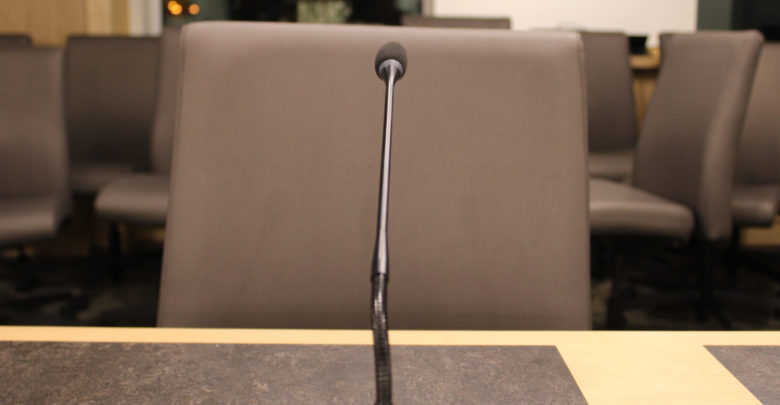Notes from Council: UASU addresses issues in casting votes in the 2023 elections
Council continues discussions on governance reformations, as well as issues with casting votes in the 2023 executive elections.
 Amanda Sparks
Amanda Sparks“Notes from Council” is The Gateway’s ongoing series of recaps of noteworthy items from Students’ Council meetings.
At the Students’ Council meeting on March 21, council discussed the issues students experienced when casting votes in the 2023 University of Alberta Students’ Union (UASU) executive elections, along with governance reformations.
Technical issue with new balloting system and misconception about hosting forums
After council was briefed on the 2023 executive elections results, vice-president (student life) Joannie Fogue asked chief returning officer, Matin Koohkan, about any “hiccups or mistakes that happened during the election period.”
Koohkan responded that there were some issues in the hosting of elections events.
“There was a common misconception on who’s hosting these events, especially forums,” said Koohkan. “If a forum is going to be hosted somewhere, it’s hosted by the faculty association. Questions are meant to be asked by students in that faculty, not the Elections Office.”
During the 2023 elections, the Campus Saint-Jean forum was hosted by the l’Association des Universitaires de la Faculté Saint-Jean; the Myer Horowitz forum, Augustana forum, and presidential debate were all hosted by the Elections Office; and the Lister Hall Students’ Association and International Students’ Association’s hosted their own forums.
“The deputy returning officers for these faculties change, so there are certain misconceptions,” said Koohkan. “If there’s a forum going to be hosted somewhere, that forum is hosted by said faculty association. That was one big issue we had this election cycle [that] we overcame, with cooperation with the current executive team.”
Koohkan added that cooperation with a governance manager would be “crucial in guiding the next Elections Office.”
Open studies councillor, Aaryan Shetty, then questioned Koohkan on if there were any changes that were being made after a some students were unable to vote due to a technical issue.
Koohkan responded that the Elections Office had begun receiving emails on the morning of the first voting day, specifically from those in the faculty of engineering. The complaints said that when these students went to cast their vote they received an error message.
He added that the Elections Office emailed each student that had this issue to restart their ballot and after that the votes were cast without issue.
“The issue was resolved through I.T.,” said Koohkan. He added that the balloting team the elections utilized this year was different from the past three or four years.
“The reason I emphasized on making the elections results night not on Thursday, but on Friday, is because I was worried something would come up,” said Koohkan.
Continued discussions of changes to governance structure
Council then began discussing Bill 5 on governance reform. Council had previously discussed a seat reduction from 35 council seats to between 17-25 for upcoming academic years.
For the 2023-24 academic year, council will have 19 seats. The seat reduction was implemented with the goal of increasing efficiency.
In continuing reformations to the UASU’s governance, Bill 5 acknowledges both changes for legislative processes of bylaws and regulations, standing orders, and minor amendments, as well as changes to the standing committees structures, memberships, and mandates.
The bill also changes the instances in which councillors can use proxies, creates a unified list of council definitions, and rectifies issues in elections dates and campaign budgets.
Lastly, Bill 5 aims to “implement several discipline, implementation, and enforcement board (DIE board) rulings from recent years,” said business councillor, Levi Flaman. These rulings relate to council transparency and attendance.
Shetty stated his support for the bill. “Change is constant and this bill is the embodiment of that, so I’m hugely in favour of that.”
Council then passed the first principles of this bill unanimously, with one abstention.
Transit policy receives updates
The first principles of the transit policy were introduced to council. The policy seeks to ensure that the UASU advocates for accessible transit for students — whether that be in terms of public transit costs, security for students who walk or bike, or the expansion of current transit systems.
Council reviewed updated facts and statistics that are to be added to the policy. Fogue said that once council approves the updates, policy committee can further consult with students about what they want the UASU to advocate for in the next five years, in terms of transit.
There was no discussion and the policy passed unanimously.




